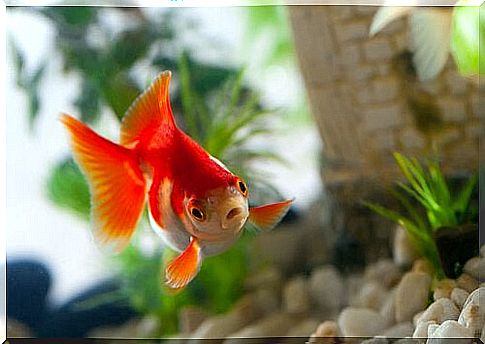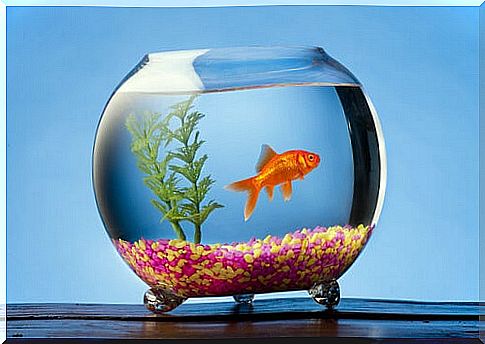The Lucio Syndrome: Forming Through Experience

The little fish Lucio is the protagonist of the experiment we are discussing today. His conduct in the study was the starting point for what is known today as the ‘Lucio syndrome’. But what can we learn from this little fish?
We have more in common with Lucio than we think. We may not live in the water or have gills, but we will certainly be able to put ourselves in Lucio once we know his story. In addition, Lucio syndrome will probably cause us to reflect on our own behavior or thoughts in certain situations.
Lucio syndrome: the experiment
During this experiment, our little friend provided the scientists and psychologists with a great lesson. Later, the findings were compared to what we do as humans. It seems that the behavior of the fish and the behavior of people have more similarities than you might think.
The experiment that would later be called the “Lucio syndrome” was very simple. The fish in question was placed in an aquarium divided into two parts by means of a transparent window. The fish was on one side of the window and its food on the other. The first thing Lucio did was try to eat the feast he saw in front of him. But just as he approached the prey, he bumped into the glass window.

He tried again, and again, until he gave up, changed direction and went for a swim on his side of the tank. The researchers then removed the window from the aquarium, but Lucio, instead of trying again to reach his food, continued to behave as if the window was still there. He stayed on his side of the aquarium. Why? Because his experience had shaped him and he was sure there was no way to get the food.
The Lucio Syndrome Applied to Humans
Something similar to what happens to Lucio is the case of the elephant in Jorge Bucay’s famous story. This elephant is chained as a baby. Chains that make it impossible for him to escape while he is still small, but which he can easily break as he grows into an adult elephant. Yet the elephant does not try again to escape.
What happens to Lucio and the elephant happens to us quite often too. If we think there’s something we can’t do because past experience taught us it, then we stop trying. Despite the fact that circumstances change, that we grow and acquire new skills, we do not try again because our experience shows that we will fail.
If we believe that we have all the information about a given situation, but that we cannot complete our mission or task, then we are witnessing Lucio syndrome. That is, we accept the inability as a result of our previous experience. If something didn’t work in the past, we automatically think it will work the same way in the present or the future.
We refuse to see or consider other options or perspectives. We bow our heads and we give up. We surrender without trying again, because we tried it once and didn’t get good results then. Whether it’s from family members’ experiences, personal experiences, or inaccurate information we’ve gathered, it’s in us to behave like Lucio and not try again.
try again
Every time you say “I’ve tried so many times” or “There’s nothing more I can do here,” think again. Perhaps the situation is different now and the window that kept you away from your goal has since been removed. Start analyzing what you had to do and go for it.

Remember that change and transformation require consistency and perseverance. If it didn’t work today, try again tomorrow or next month. Do not give up. This process is not meant to cause you distress. Better to take advantage of what the process teaches you.
Never allow anyone or anything to mold and change your thoughts and beliefs. Even you have no right to do that. The next time you have a difficult task ahead of you that you need to complete, think of Lucio, but don’t act like him. Look for a way to get out of it successfully, even if it takes a lot of time, energy and resources. The reward of reaching your goal makes it more than worth trying again.









